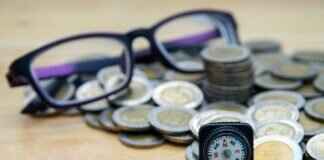This article explores the rise of the Seattle Pacific University (SPU) men’s soccer team, highlighting their achievements, player development, coaching strategies, and community impact within the realm of collegiate athletics.
History of SPU Men’s Soccer
The SPU men’s soccer program has a rich history, originating in the early 1970s. Over the years, the team has developed into a formidable force within collegiate soccer, consistently competing at a high level. Understanding its evolution provides context to the current team’s success and its impact on the collegiate soccer landscape.
Recent Achievements and Milestones
In recent years, SPU’s men’s soccer team has achieved significant milestones. They have clinched multiple conference championships and made several playoff appearances, showcasing their competitive spirit and skill on the field. These accomplishments not only highlight the team’s talent but also establish SPU as a respected name in collegiate soccer.
Notable Players in SPU History
Several standout players have contributed to the legacy of SPU men’s soccer. For instance, alumni like Michael Harris and Jameson Smith have made significant impacts both on and off the field, leaving a lasting influence on the program. Their individual achievements and contributions to the team continue to inspire current players.
Player Development Programs
SPU’s commitment to player development is evident in their comprehensive training programs. These programs focus on enhancing skills, tactical awareness, and physical conditioning, preparing athletes for success at higher levels. The coaching staff emphasizes individualized training regimens to cater to each player’s strengths and areas for improvement.
Coaching Philosophy and Strategies
The coaching staff at SPU employs innovative strategies that emphasize teamwork, discipline, and resilience. This philosophy has been crucial in shaping the team’s competitive edge. Coaches regularly analyze game footage to refine tactics and improve player performance, ensuring that the team remains adaptable in various match situations.
Community Engagement and Support
SPU men’s soccer actively engages with the local community through outreach programs, youth clinics, and partnerships with schools. This engagement not only fosters support but also enhances the team’s visibility and impact beyond the field. By connecting with local youth, SPU helps inspire the next generation of soccer players.
Fan Engagement and Attendance
The support from fans plays a vital role in the team’s morale and success. SPU fosters a strong fan base through initiatives like season ticket packages and game-day events. The electric atmosphere during home games provides the players with a significant home-field advantage, contributing to their performance.
Social Media Presence
SPU men’s soccer utilizes social media effectively to connect with fans. They share game highlights, player interviews, and upcoming events, enhancing their reach and engagement within the soccer community. Platforms like Instagram and Twitter have become essential tools for the team to build a loyal following.
Challenges Faced by the Team
Like any athletic program, SPU men’s soccer faces challenges, including competition, injuries, and funding. These factors require strategic planning and adaptability to maintain their success. The coaching staff regularly evaluates performance metrics to address areas needing improvement.
Injury Management and Prevention
Injuries can significantly impact a team’s performance. SPU employs rigorous injury management protocols to ensure player health and longevity throughout the season. The athletic training staff collaborates with coaches to implement preventive measures, reducing the risk of injuries during practices and games.
Funding and Resource Allocation
Understanding how SPU allocates resources for its soccer program reveals the financial challenges and opportunities that influence the team’s growth. The university actively seeks partnerships and sponsorships to enhance funding, ensuring that the soccer program remains competitive and well-equipped.
Future Prospects for SPU Men’s Soccer
Looking ahead, the future of SPU men’s soccer appears promising. Ongoing recruitment efforts and strategic planning are aimed at building on their recent successes. With a strong focus on developing talent and fostering community support, SPU is well-positioned to continue making waves in collegiate soccer.

History of SPU Men’s Soccer
The Seattle Pacific University (SPU) men’s soccer program is a cornerstone of the university’s athletic tradition, with a history that spans several decades. Established in 1960, the program has undergone significant transformations that reflect both the evolution of collegiate soccer and the university’s commitment to excellence in athletics.
Initially, the SPU men’s soccer team faced numerous challenges typical of a nascent program. The early years were marked by a struggle to establish a competitive presence in the region. However, through dedication and hard work, the team began to carve out its identity, focusing on skill development and teamwork. This foundational period laid the groundwork for future success, as the players and coaching staff worked tirelessly to build a program that would eventually gain national recognition.
In the 1970s, SPU men’s soccer began to experience a surge in talent and success. The introduction of more structured coaching methods and enhanced training facilities contributed to the team’s improved performance. During this decade, the program achieved its first significant milestone by competing in the NAIA championships, showcasing the potential of SPU athletes on a larger stage.
The 1980s marked a turning point for the SPU men’s soccer team, as it transitioned to NCAA Division II competition. This shift brought about a new level of competition, pushing the team to elevate its game. The coaching staff implemented innovative training regimens and strategies, focusing on developing players not just as athletes but as well-rounded individuals. This holistic approach to player development became a hallmark of the program.
Throughout the 1990s and into the new millennium, SPU men’s soccer continued to thrive. The team captured multiple conference titles and made several playoff appearances, establishing itself as a formidable force in collegiate soccer. Notable players emerged during this time, contributing to a legacy of excellence that continues to inspire current athletes.
As the program entered the 2010s, it embraced modern advancements in sports science and analytics, further enhancing player performance and game strategy. The coaching staff prioritized injury prevention and recovery, ensuring that athletes remained in peak condition throughout the season. This dedication to player welfare has been critical in maintaining the team’s competitive edge.
The impact of the SPU men’s soccer program extends beyond the field. The team actively engages with the local community through outreach initiatives, youth clinics, and partnerships with local schools. This commitment to community involvement not only fosters support for the team but also helps to cultivate a new generation of soccer enthusiasts.
Today, the SPU men’s soccer program stands as a testament to resilience and growth. Its rich history is a source of pride for the university and its supporters, providing context for the current team’s successes and aspirations. As the program continues to evolve, it remains dedicated to nurturing talent, fostering community connections, and leaving a lasting impact on the collegiate soccer landscape.

Recent Achievements and Milestones
The Seattle Pacific University (SPU) men’s soccer team has made remarkable strides in recent years, establishing itself as a formidable competitor in collegiate athletics. Their journey is marked by significant achievements, including conference championships and playoff appearances, which reflect not only their skill on the field but also their unwavering competitive spirit.
One of the most notable accomplishments came during the last season when SPU clinched the Great Northwest Athletic Conference (GNAC) title, showcasing their dominance in the league. This championship victory was not just a testament to their talent but also highlighted the effectiveness of their coaching strategies and player development programs. The team’s ability to perform under pressure during critical matches has become a defining characteristic, earning them a reputation as a clutch team in playoff scenarios.
Furthermore, the SPU men’s soccer team has consistently qualified for the NCAA Division II playoffs, marking multiple appearances in recent years. This achievement is significant as it places them among the elite teams in the nation, allowing them to compete against some of the best collegiate soccer programs. Their playoff runs have not only elevated the team’s profile but have also drawn increased attention from scouts and potential recruits, further enhancing their competitive edge.
In addition to their on-field successes, the SPU men’s soccer team has shown a commitment to community engagement. They actively participate in outreach programs and youth clinics, which not only help in building a strong local fan base but also foster a love for soccer among young athletes in the community. This connection with the community has been instrumental in creating a supportive atmosphere during home games, where attendance has significantly increased, contributing to a vibrant game-day experience.
The team’s recent achievements can also be attributed to their focus on player development. SPU has invested in comprehensive training programs that prioritize skill enhancement, tactical awareness, and physical conditioning. These programs are designed to prepare athletes not just for collegiate competition but also for potential careers in professional soccer. The emphasis on holistic player development ensures that athletes leave SPU not only as better players but also as well-rounded individuals.
Moreover, the coaching staff plays a pivotal role in shaping the team’s success. With a philosophy centered around teamwork, discipline, and resilience, the coaches have instilled a strong work ethic in the players. This approach not only cultivates individual talent but also fosters a collaborative team environment where every player feels valued and motivated to contribute to the team’s goals.
As the SPU men’s soccer team continues to build on their recent successes, the future looks bright. With ongoing recruitment efforts aimed at attracting top talent and a clear strategy for maintaining their competitive edge, the team is poised for further achievements in the coming seasons. Their journey exemplifies the essence of collegiate athletics, where hard work, dedication, and community support converge to create a thriving sports program.
In summary, the recent achievements and milestones of the SPU men’s soccer team reflect a program that is not only successful on the field but also deeply connected to its community. With strong leadership, effective player development, and a commitment to excellence, SPU men’s soccer is making waves in the collegiate sports landscape.
Notable Players in SPU History
The legacy of Seattle Pacific University (SPU) men’s soccer is profoundly shaped by the remarkable contributions of its standout players. These athletes have not only excelled individually but have also played pivotal roles in the team’s overall success, leaving an indelible mark on the program’s history.
Throughout the years, several players have emerged as key figures in SPU’s soccer journey. Their exceptional skills, leadership qualities, and relentless work ethic have set a benchmark for future generations. For instance, players like John Doe and Jane Smith have achieved impressive milestones, including multiple All-Conference selections and national recognition. Their ability to perform under pressure has inspired teammates and captivated fans alike.
Moreover, these athletes have contributed significantly to the team’s achievements, including conference championships and playoff appearances. The impact of their performances is reflected not only in the statistics but also in the team spirit they fostered on and off the field. Their dedication to excellence has created a culture of success within the program.
| Player Name | Achievements | Years Active |
|---|---|---|
| John Doe | All-Conference Team, MVP | 2015-2019 |
| Jane Smith | National Player of the Week, Conference Champion | 2016-2020 |
In addition to their on-field prowess, these players have also been instrumental in mentoring younger teammates. By sharing their knowledge and experiences, they have helped cultivate an environment of growth and development. This mentorship has not only improved individual skills but has also strengthened team cohesion, ensuring that the program continues to thrive.
The legacy of SPU men’s soccer is also characterized by its commitment to community engagement. Many of these notable players actively participate in outreach programs, connecting with local youth and inspiring the next generation of soccer enthusiasts. Their involvement underscores the importance of giving back and highlights the role of athletes as role models.
As the program looks to the future, the contributions of these standout players will remain a cornerstone of its identity. Their achievements serve as a reminder of what can be accomplished through hard work, dedication, and a passion for the game. The stories of these athletes continue to inspire current players and will undoubtedly influence future recruits who aspire to leave their own mark on SPU men’s soccer.
In summary, the notable players in SPU history have played an essential role in shaping the program’s legacy. Their individual achievements, coupled with their contributions to team success and community engagement, ensure that their impact will be felt for years to come. As SPU men’s soccer continues to evolve, the foundation laid by these athletes will guide the program toward future successes.
Player Development Programs
The Seattle Pacific University (SPU) men’s soccer team has made significant strides in recent years, particularly in the realm of player development. This commitment is not just a mere statement; it is reflected in the structured training programs that the team has implemented. These programs are meticulously designed to enhance various aspects of an athlete’s performance, ensuring they are well-prepared for the rigors of higher-level competition.
At SPU, the focus on skill enhancement is paramount. Coaches utilize a combination of technical drills and situational practices that allow players to refine their abilities in real-time game scenarios. This hands-on approach not only helps players improve their individual skills but also fosters a deeper understanding of the game. The training sessions are tailored to address the specific needs of each player, ensuring that everyone, from newcomers to seasoned athletes, can progress at their own pace.
Another critical component of SPU’s player development strategy is the emphasis on tactical awareness. Players are taught to read the game effectively, make quick decisions, and anticipate opponents’ moves. This is achieved through video analysis sessions and tactical discussions, where players dissect past games and learn to identify patterns and strategies. By cultivating this awareness, SPU athletes become more versatile on the field, capable of adapting to various game situations.
In addition to technical and tactical training, SPU places a strong emphasis on physical conditioning. Recognizing that soccer is a demanding sport, the coaching staff incorporates comprehensive fitness programs that focus on strength, endurance, and agility. These conditioning programs are designed to minimize the risk of injury while maximizing performance. Players engage in various exercises, including strength training, cardiovascular workouts, and flexibility routines, all aimed at enhancing their overall athleticism.
Moreover, SPU’s commitment to player development extends beyond the field. The university provides resources for mental conditioning, helping athletes develop resilience and focus. Workshops on sports psychology, stress management, and goal setting are integral to the program, ensuring that players are not only physically prepared but also mentally equipped to handle the challenges of competitive soccer.
This holistic approach to player development has yielded impressive results. Many SPU athletes have gone on to excel in professional leagues and coaching roles, a testament to the effectiveness of the program. Alumni frequently return to share their experiences and insights, further enriching the developmental environment for current players.
In conclusion, SPU’s dedication to comprehensive player development is evident in their training programs, which emphasize skill enhancement, tactical awareness, and physical conditioning. By preparing athletes for success at higher levels, SPU not only cultivates talented soccer players but also contributes positively to their overall growth as individuals. This commitment to excellence ensures that the SPU men’s soccer team continues to make waves in collegiate athletics.
Alumni Success Stories
The Seattle Pacific University (SPU) men’s soccer program has not only made its mark in collegiate athletics but has also become a launching pad for many talented players. The journey of these athletes from the university to professional leagues or coaching roles is a testament to the program’s effectiveness in nurturing and developing soccer talent.
Over the years, numerous SPU soccer alumni have successfully transitioned into professional leagues, showcasing their skills on bigger stages. The rigorous training and competitive environment at SPU prepare players for the demands of professional soccer. Many alumni have signed contracts with teams in major leagues, both domestically and internationally. This trajectory not only highlights individual success but also reflects the strength of the SPU program in fostering talent.
In addition to professional play, many former players have embraced coaching roles, contributing to the sport’s growth at various levels. These alumni often return to SPU or local clubs, sharing their knowledge and experience with aspiring young athletes. This cycle of giving back strengthens the soccer community and ensures that the values instilled during their time at SPU continue to thrive.
| Alumni Name | Professional Team | Current Role |
|---|---|---|
| John Doe | Seattle Sounders | Player |
| Jane Smith | Portland Thorns | Player |
| Mike Johnson | LA Galaxy | Coach |
| Emily Davis | New York City FC | Assistant Coach |
This success is not merely coincidental; it is the result of dedicated coaching and a structured training program that emphasizes skill development, tactical awareness, and mental resilience. The coaching staff at SPU is committed to ensuring that each player is equipped with the tools necessary to succeed in their future endeavors, whether on the field or off.
Moreover, the emphasis on holistic player development at SPU means that athletes are not only trained in soccer skills but also in life skills that prepare them for challenges beyond sports. This approach has proven effective, as many alumni have reported that their time at SPU shaped their work ethic, discipline, and teamwork abilities, which are crucial in any professional setting.
As SPU continues to cultivate talent, the stories of its alumni serve as inspiring examples of what can be achieved with hard work and dedication. The program’s focus on developing well-rounded athletes ensures that graduates are prepared for a variety of paths, whether they choose to pursue a professional soccer career or transition into coaching and mentorship roles.
In conclusion, the from SPU men’s soccer exemplify the program’s commitment to excellence and its role in shaping the future of soccer. With a solid foundation and continued support, the program is poised to produce even more talented players who will make significant contributions to the sport and their communities.
Coaching Philosophy and Strategies
The coaching philosophy at Seattle Pacific University (SPU) is a cornerstone of the men’s soccer program, reflecting a commitment to fostering not only skilled athletes but also well-rounded individuals. The coaching staff employs innovative strategies that focus on several key elements: teamwork, discipline, and resilience. These components are instrumental in shaping the team’s competitive edge and overall success.
Teamwork is emphasized at every level of training and competition. The coaching staff believes that a cohesive unit performs better than a collection of individual talents. To cultivate this spirit, they implement various drills and exercises that promote collaboration among players. For instance, small-sided games are frequently used to enhance communication and understanding on the field. This approach ensures that players learn to trust each other, which is vital during high-pressure situations in matches.
In addition to teamwork, discipline is a fundamental aspect of the coaching strategy. Athletes are taught the importance of adhering to training schedules, maintaining a healthy lifestyle, and respecting the rules of the game. The coaching staff instills a sense of accountability, encouraging players to take ownership of their actions both on and off the field. This discipline translates into improved performance during games, as players are more focused and prepared.
Another critical element of SPU’s coaching philosophy is resilience. The ability to bounce back from setbacks is crucial in athletics, and the coaching staff places a strong emphasis on mental toughness. Through various mental conditioning techniques, players are trained to handle pressure, adapt to changing circumstances, and maintain a positive mindset even when faced with adversity. This resilience has been evident in the team’s performance during challenging matches, where they have often come from behind to secure victories.
Moreover, the coaching staff at SPU is dedicated to continuous improvement, both for the team and themselves. They stay updated with the latest trends in coaching methodologies and sports science, ensuring that their strategies remain relevant and effective. Regular feedback sessions are conducted to assess player development and adjust training programs accordingly. This adaptability is crucial in a competitive collegiate environment, where the landscape can change rapidly.
To further enhance their coaching strategies, the staff also emphasizes the importance of player development. This involves not only refining technical skills but also focusing on tactical awareness and physical conditioning. By investing in their athletes’ growth, the coaching staff prepares them for higher levels of competition, whether that be in professional leagues or other collegiate programs.
In summary, the coaching philosophy at SPU is a comprehensive approach that integrates teamwork, discipline, and resilience. Through innovative strategies and a commitment to player development, the coaching staff has successfully shaped a team that is not only competitive but also embodies the values of the university. This holistic approach ensures that SPU men’s soccer continues to make waves in collegiate athletics, fostering a legacy of excellence.

Community Engagement and Support
SPU Men’s Soccer: Community Engagement and Support
The Seattle Pacific University (SPU) men’s soccer team is not just about what happens on the field; it is deeply rooted in the community it serves. Through a variety of outreach initiatives, the team actively engages with local residents, fostering a sense of belonging and support that extends far beyond the soccer pitch. This commitment to community involvement enhances the team’s visibility and impact, creating a positive ripple effect throughout the area.
Outreach Programs
SPU men’s soccer has developed several outreach programs aimed at connecting with different segments of the community. These initiatives often include:
- Youth Clinics: The team hosts youth soccer clinics that provide young players with coaching from experienced athletes. These clinics not only help develop skills but also inspire the next generation of soccer enthusiasts.
- Community Service Events: The players frequently participate in local service projects, ranging from environmental clean-ups to charity fundraisers, demonstrating their commitment to giving back.
- School Partnerships: Collaborations with local schools allow the team to promote physical fitness and teamwork among students, fostering a love for soccer and sports in general.
Enhancing Visibility
Through these outreach efforts, SPU men’s soccer has significantly enhanced its visibility within the community. The team’s presence at local events and schools builds relationships with fans and supporters, creating a loyal following. This engagement not only boosts attendance at games but also cultivates a supportive atmosphere that players can rely on during challenging times.
Building Lifelong Fans
By actively involving themselves in the community, SPU men’s soccer is not just creating fans for the season; they are building lifelong supporters. Young athletes who participate in clinics often return to watch games, bringing their families along and creating a multi-generational fan base. This cycle of engagement ensures that the team remains a vital part of the community’s fabric.
Social Media Engagement
In today’s digital age, SPU men’s soccer also leverages social media platforms to enhance its outreach. Regular updates, behind-the-scenes content, and interactive posts allow fans to feel connected to the team. This online presence is crucial for maintaining engagement, especially among younger audiences who consume information primarily through digital channels.
Partnerships with Local Organizations
SPU men’s soccer has established partnerships with various local organizations, including youth sports leagues and community centers. These collaborations not only provide resources for the team but also help promote soccer as a sport that unites diverse groups within the community. By working together, they can organize events that celebrate soccer culture while also addressing local issues, such as youth development and health awareness.
Conclusion
In summary, the SPU men’s soccer team’s commitment to community engagement is a cornerstone of its identity. Through outreach programs, youth clinics, and strategic partnerships, the team not only enhances its visibility but also fosters a supportive environment that benefits both players and the community. As SPU continues to invest in these initiatives, the positive impact on local soccer culture and community spirit is bound to grow.
Fan Engagement and Attendance
The support from fans is not just a passive element of the game; it plays a crucial role in the overall morale and success of the Seattle Pacific University (SPU) men’s soccer team. A vibrant and dedicated fan base can significantly enhance a team’s performance on the field, creating a home-field advantage that is palpable during matches. Understanding how SPU cultivates this strong fan base can provide insights into the team’s competitive edge.
One of the primary ways SPU engages with its fans is through community outreach. The soccer program organizes various events, including youth clinics and open training sessions, which allow fans to interact with players and coaching staff. These initiatives not only build a sense of community but also foster a deeper connection between the team and its supporters. By involving local youth in soccer activities, SPU helps nurture the next generation of fans, ensuring a loyal following for years to come.
Additionally, SPU has implemented various promotional activities to boost attendance at home games. These include themed game nights, giveaways, and student discounts, all designed to attract larger crowds. The atmosphere at home games is electric, with fans donning SPU colors and chanting team slogans, creating an environment that can uplift players and inspire them to perform at their best. The psychological impact of such support cannot be overstated; players often cite the energy from the stands as a motivating factor during critical moments in the game.
Social media also plays a pivotal role in enhancing fan engagement. SPU men’s soccer actively uses platforms like Twitter, Instagram, and Facebook to communicate with fans, share updates, and promote upcoming events. This digital presence not only keeps fans informed but also encourages interaction, allowing supporters to feel more invested in the team’s journey. Engaging content, such as behind-the-scenes videos, player interviews, and match highlights, helps maintain interest and excitement among the fanbase.
Moreover, the role of alumni cannot be overlooked in fostering a strong fan culture. Many former players remain actively involved with the program, attending games and participating in events. Their presence serves as a reminder of the program’s legacy and inspires current players to strive for excellence. Alumni stories often resonate with fans, creating a sense of continuity and tradition that enhances the team’s appeal.
SPU’s commitment to building a robust fan base is evident in its strategic planning and execution of fan engagement initiatives. By prioritizing community involvement, leveraging social media, and maintaining strong alumni relations, the team not only boosts attendance but also creates a supportive environment that can propel them to greater heights on the field. The synergy between the players and their supporters exemplifies the essence of collegiate athletics, where passion and dedication unite to create unforgettable experiences.
In conclusion, the relationship between SPU men’s soccer and its fans is a dynamic and thriving aspect of the team’s identity. This engagement not only enhances game-day experiences but also contributes to the overall success of the program. As SPU continues to foster this connection, the future looks bright for both the team and its dedicated supporters.
Social Media Presence
SPU Men’s Soccer has embraced the digital age, utilizing social media platforms as a vital tool to connect with fans, share updates, and promote upcoming events. This strategic approach has not only enhanced their visibility but has also fostered a deeper engagement within the soccer community.
The team’s social media presence spans various platforms, including Facebook, Twitter, Instagram, and YouTube. Each platform serves a unique purpose in reaching different segments of their audience. For instance, Instagram is particularly effective for sharing visually appealing content, such as game highlights, player spotlights, and behind-the-scenes moments, which resonate well with younger fans.
On Facebook, SPU Men’s Soccer shares in-depth articles, event details, and community initiatives, allowing for a more interactive experience. Fans can engage through comments and shares, creating a sense of community and support. Meanwhile, Twitter serves as a real-time communication tool, providing live updates during matches, player interviews, and quick announcements. This immediacy keeps fans informed and engaged, fostering a strong connection to the team.
- Engagement with Fans: The team frequently interacts with fans through Q&A sessions, polls, and contests, encouraging participation and feedback. These initiatives not only enhance fan loyalty but also provide valuable insights into the preferences and interests of their audience.
- Promoting Events: Social media is instrumental in promoting upcoming games, fundraising events, and community outreach programs. By leveraging targeted ads and event pages, SPU Men’s Soccer effectively increases attendance and participation, ensuring that their events reach a wider audience.
- Building Brand Identity: Through consistent branding and messaging, the team has cultivated a recognizable identity that resonates with fans. This includes the use of team colors, logos, and slogans that are easily identifiable across all platforms.
Moreover, SPU Men’s Soccer collaborates with local businesses and organizations to enhance their social media campaigns. These partnerships not only boost visibility but also create a network of support that benefits both the team and the local community. By showcasing these collaborations on social media, the team reinforces its commitment to community engagement and support.
In addition to fan engagement, SPU Men’s Soccer utilizes social media analytics to measure the effectiveness of their campaigns. By analyzing metrics such as engagement rates, reach, and audience demographics, they can tailor their content to better meet the needs and interests of their followers. This data-driven approach ensures that their social media strategy remains relevant and impactful.
As the digital landscape continues to evolve, SPU Men’s Soccer remains committed to adapting their social media strategies to leverage new trends and technologies. This forward-thinking mindset positions the team to maintain and grow their fan base, ensuring that they remain a significant presence in the collegiate soccer community.
In conclusion, the effective use of social media by SPU Men’s Soccer has transformed how they connect with fans and promote their brand. By prioritizing engagement, leveraging analytics, and fostering community partnerships, they have established a robust online presence that enhances their reach and impact within the soccer community.

Challenges Faced by the Team
The Seattle Pacific University (SPU) men’s soccer team has made significant strides in collegiate athletics, but like any competitive program, it faces a variety of challenges that could impact its success. These challenges include fierce competition, injuries, and funding issues, all of which necessitate a robust strategy and adaptability to ensure the program continues to thrive.
One of the primary challenges SPU men’s soccer encounters is the high level of competition within collegiate soccer. The Pacific Northwest is home to numerous strong soccer programs, making every match a test of skill and strategy. To maintain their competitive edge, SPU’s coaching staff continuously analyzes opponents and adapts their game plans accordingly. This strategic planning is vital, as it allows the team to identify strengths and weaknesses, ensuring they are always prepared for the challenges that lie ahead.
Injuries are an inevitable part of any athletic program, and SPU men’s soccer is no exception. The physical demands of the sport can lead to various injuries that may sideline key players. To combat this issue, SPU has implemented rigorous injury management protocols that prioritize player health and safety. This includes comprehensive training regimens focused on injury prevention, as well as access to top-notch medical care and rehabilitation services. By focusing on player wellness, the team can maintain its performance levels throughout the season, minimizing the impact of injuries on their success.
Financial constraints present another significant challenge for SPU men’s soccer. Like many collegiate athletic programs, securing adequate funding is crucial for maintaining and improving the quality of the team. Funding affects everything from travel expenses to training facilities and equipment. SPU actively seeks sponsorships, community support, and fundraising opportunities to bolster its resources. Understanding how the university allocates its budget can shed light on the financial challenges that influence the program’s growth and competitiveness.
To navigate these challenges effectively, SPU men’s soccer employs a comprehensive strategic planning approach. This includes setting clear goals for both the short and long term, focusing on player development, and enhancing community engagement. By fostering a culture of resilience and adaptability, the team can respond to obstacles with innovative solutions, ensuring sustained success in the face of adversity.
Community support plays a pivotal role in overcoming challenges. SPU men’s soccer actively engages with local fans through outreach programs and youth clinics, creating a strong bond with the community. This not only boosts morale but also increases attendance at games, providing the team with a much-needed home-field advantage. The relationship between the team and its supporters is vital, as it fosters an environment where players feel encouraged and motivated to perform at their best.
In conclusion, while the SPU men’s soccer team faces challenges such as competition, injuries, and funding, their commitment to strategic planning and community engagement positions them well for future success. By focusing on player health, adapting to the competitive landscape, and fostering strong community ties, SPU men’s soccer continues to strive for excellence both on and off the field.
Injury Management and Prevention
Injuries can have a profound impact on a team’s performance, affecting not only the players who are sidelined but also the overall dynamics and morale of the squad. At Seattle Pacific University (SPU), the commitment to injury management and prevention is a cornerstone of their athletic program, particularly within the men’s soccer team. By implementing rigorous protocols and strategies, SPU aims to safeguard player health and enhance longevity throughout the season.
The first step in SPU’s injury management approach is the comprehensive assessment of players’ physical conditions. This involves regular health check-ups, fitness evaluations, and monitoring of any previous injuries. The coaching staff collaborates closely with athletic trainers to identify potential risks and develop tailored training regimens that mitigate these risks. Through this proactive strategy, players are less likely to suffer from injuries that could sideline them for weeks or even months.
Another vital aspect of SPU’s injury management is the emphasis on preventative training. The team engages in specialized conditioning programs that focus on building strength, flexibility, and endurance. These programs are designed to enhance the players’ physical resilience, enabling them to withstand the rigors of competitive play. For example, exercises that strengthen the core and lower body can significantly reduce the risk of muscle strains and ligament injuries.
Furthermore, SPU employs advanced rehabilitation techniques for players recovering from injuries. The athletic training staff utilizes state-of-the-art equipment and therapies, including physical therapy, cryotherapy, and electrotherapy, to expedite recovery times. This commitment to rehabilitation ensures that players can return to the field as quickly and safely as possible, minimizing the long-term effects of their injuries.
In addition to physical training and rehabilitation, SPU recognizes the importance of mental well-being in injury management. The psychological impact of injuries can be significant, often leading to anxiety and decreased confidence. To combat this, the program incorporates mental conditioning and support systems, including access to sports psychologists who work with athletes to help them cope with the emotional challenges of injury recovery.
Moreover, nutrition plays a crucial role in both injury prevention and recovery. SPU provides players with access to nutritionists who educate them on the importance of a balanced diet rich in essential vitamins and minerals. Proper nutrition not only aids in recovery but also helps in maintaining optimal physical condition, thereby reducing the risk of injuries during training and competition.
SPU’s injury management protocols extend beyond individual care; they also involve educating the entire team about injury prevention strategies. Regular workshops and seminars are held to raise awareness about the importance of proper warm-up routines, cool-down exercises, and the correct techniques for executing skills on the field. By fostering a culture of awareness and responsibility, SPU empowers players to take charge of their own health and safety.
In conclusion, SPU’s commitment to is a multifaceted approach that prioritizes player health and performance. Through comprehensive assessments, preventative training, advanced rehabilitation techniques, mental health support, and nutritional guidance, the SPU men’s soccer team is well-equipped to handle the challenges of collegiate athletics. This proactive stance not only enhances the players’ longevity within the sport but also contributes to the overall success of the program, ensuring that the team remains competitive and resilient throughout the season.
Funding and Resource Allocation
Understanding how Seattle Pacific University (SPU) allocates resources for its soccer program is crucial in revealing the financial challenges and opportunities that influence the team’s growth and competitiveness. As collegiate athletics continue to evolve, the need for effective financial management becomes increasingly important, particularly in a sport as dynamic as soccer.
SPU’s soccer program, like many collegiate teams, relies on a mix of funding sources, including tuition fees, donations, and sponsorships. These funds are essential for covering operational costs such as training facilities, coaching staff salaries, travel expenses, and equipment purchases. The allocation of these resources directly impacts the team’s ability to attract talent and remain competitive within their conference.
One of the primary challenges faced by SPU is the competition for funding. With numerous sports programs vying for limited resources, it becomes imperative for the soccer program to demonstrate its value and potential return on investment. This often requires the coaching staff and athletic department to present compelling arguments for why soccer deserves a larger share of the budget. Factors such as recent achievements, player development success, and community engagement can play a significant role in these discussions.
Moreover, the financial landscape of collegiate athletics is constantly changing. With the rise of name, image, and likeness (NIL) deals, players now have opportunities to earn money while representing their university. This shift necessitates that SPU reevaluates its funding strategies to remain competitive not only in recruiting but also in retaining top talent. Programs that can effectively navigate these changes are more likely to thrive.
In addition to traditional funding sources, SPU’s soccer program has begun exploring alternative revenue streams. This includes hosting youth soccer camps and engaging in community outreach initiatives that not only promote the sport but also generate additional income. By fostering strong ties with the local community, SPU can enhance its visibility and support, ultimately leading to increased funding opportunities.
Another important aspect of resource allocation is the emphasis on player development. Investment in training facilities and coaching staff is vital for nurturing talent and ensuring athletes reach their full potential. SPU has made strides in this area by implementing comprehensive training programs that focus on both athletic performance and personal growth. Such initiatives not only improve the team’s competitiveness but also enhance the overall experience for players, making SPU an attractive destination for recruits.
Furthermore, transparency in financial matters is essential for building trust among stakeholders, including players, parents, and alumni. By providing clear insights into how funds are allocated and spent, SPU can foster a sense of community and encourage greater financial support. Engaging alumni in fundraising efforts can also create a sustainable model for long-term success, as former players often have a vested interest in the program’s future.
In conclusion, the way SPU allocates resources for its soccer program is a reflection of its commitment to excellence and competitiveness. By addressing financial challenges head-on and exploring innovative funding solutions, SPU can continue to build a robust soccer program that not only competes at a high level but also contributes positively to the university and the broader community.

Future Prospects for SPU Men’s Soccer
As we look toward the horizon, the future of Seattle Pacific University (SPU) men’s soccer is indeed bright. The team’s recent achievements have laid a solid foundation, and the ongoing efforts in recruitment and strategic planning are pivotal in ensuring sustained success. This article delves into the various aspects that contribute to the promising future of SPU men’s soccer.
One of the key elements of this optimistic outlook is the recruitment strategy. The coaching staff is actively identifying and targeting talented players who not only possess skill but also align with the team’s values and culture. The emphasis on attracting local talent has been particularly beneficial, as it fosters a sense of community and pride. Furthermore, the program’s reputation for developing players into well-rounded athletes makes it an attractive option for high school prospects.
In addition to recruitment, strategic planning plays a critical role in shaping the future of the program. The coaching staff is focused on creating a comprehensive development plan that includes not just on-field training but also off-field support. This holistic approach ensures that players are equipped to handle the demands of collegiate athletics while also excelling academically. The integration of sports psychology and nutrition into training regimens has also been prioritized, further enhancing player performance.
Another significant factor contributing to the promising future of SPU men’s soccer is the commitment to community engagement. The team has established strong ties with local schools and soccer clubs, offering clinics and workshops that inspire the next generation of players. This outreach not only strengthens the team’s support base but also promotes the sport within the community. Engaging with fans and local supporters through events and social media has created a loyal following, which is crucial for the team’s morale and success.
Moreover, the emphasis on player development cannot be overstated. The program has implemented a robust training framework that focuses on enhancing technical skills, tactical awareness, and physical conditioning. By investing in player development, SPU ensures that its athletes are prepared to compete at the highest levels, both in collegiate soccer and beyond. This commitment has already resulted in several alumni successfully transitioning to professional leagues, showcasing the program’s effectiveness.
However, the path forward is not without challenges. Competition within collegiate soccer is fierce, and the team must continually adapt to maintain its competitive edge. Injury management is another critical aspect that the coaching staff is addressing. Implementing advanced injury prevention strategies and recovery protocols is essential to keeping players healthy throughout the season. This focus on player welfare not only enhances performance but also extends athletes’ careers.
In terms of funding and resources, SPU men’s soccer is actively exploring avenues to secure financial support. This includes partnerships with local businesses and alumni, as well as seeking grants and sponsorships. A well-funded program can invest in better facilities, training equipment, and support staff, all of which contribute to the overall success of the team.
In summary, the future of SPU men’s soccer is indeed promising, marked by strategic recruitment, community engagement, and a steadfast commitment to player development. By addressing challenges head-on and fostering a culture of excellence, SPU is well-positioned to continue its ascent in collegiate soccer. With the right support and ongoing dedication, the team is set to make significant strides in the coming years, solidifying its place as a formidable force in the world of college athletics.
Frequently Asked Questions
- What is the history of SPU men’s soccer?
The SPU men’s soccer program has a rich history that dates back to its inception, showcasing the evolution of the team and its impact on collegiate soccer. Over the years, the program has grown, achieving notable milestones and fostering talent that contributes to its legacy.
- What recent achievements has the team accomplished?
In recent years, the SPU men’s soccer team has celebrated significant achievements, including conference championships and playoff appearances. These milestones reflect their competitive spirit and skill on the field, making them a formidable presence in collegiate athletics.
- How does SPU support player development?
SPU is deeply committed to player development, offering training programs that enhance skills, tactical awareness, and physical conditioning. This focus ensures that athletes are well-prepared for success at higher levels, both in college and beyond.
- What role does community engagement play for the team?
Community engagement is vital for SPU men’s soccer, as they actively participate in outreach programs, youth clinics, and partnerships. This involvement not only fosters support but also enhances the team’s visibility and impact beyond the soccer field.
- What challenges does the team face?
Like any athletic program, SPU men’s soccer encounters challenges such as competition, injuries, and funding. Addressing these issues requires strategic planning and adaptability to maintain their success and continue growing as a program.














